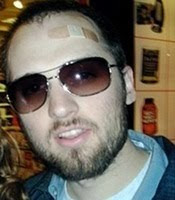Ethan and Joel Coen have more than earned a place alongside the greatest American filmmakers. Although the list of notable Coen films has reached double digits, the Brothers' most remembered work remains this 1996 crime masterpiece. Inspired by their own experiences growing up in the American Midwest, the Coens meticulously re-create every mannerism of the residents of small-town North Dakota and Minnesota. Somehow, the filmmakers manage to find endless laughs at the expense of the locals, while remaining respectful and affectionate toward them. Framed by the visionary cinematography of Roger Deakins, Fargo’s flat, desolate, snow-covered landscapes stretch as far as the eye can see. In its own way, the sheer look of this environment becomes as important an element of the storytelling as the sinister silouettes of The Night of the Hunter, the scorching deserts of Lawrence of Arabia, or the rainy cityscapes of Blade Runner. These images become an indispensible metaphor for the empty souls of its pathetic and lonely characters. As with many other Coen films, the plot revolves around a suitcase full of money; the story explores the depths to which people will sink, in order to get their hands on it. Feeble car salesman Jerry Lundegaard (William H. Macy) hires a pair of petty criminals, one a conniving weasel (Steve Buscemi) and the other a stone-cold psychopath (Peter Stormare). The scheme requires kidnapping his own wife, so that he can extort a ransom from his wealthy father-in-law (Harve Presnell). These four men lie and cheat to keep as much of the million-dollar payment as possible, while leaving a trail of blood in the snow behind them. Miraculously, amidst this meteorological and moral wasteland, an unstoppable ray of sunlight emerges. Pregnant police chief Marge Gunderson (Frances McDormand) melts away all traces of icy nihilism, with her genuinely honest and cheerful approach to detective work and life in general. Even though this story may not have been “based on true events” as the title cards proclaim, few stories offer a more truthful look at the extent of human capacity for depravity, but also for decency.
Saturday, August 21, 2010
Fargo (1996, Ethan and Joel Coen)
Ethan and Joel Coen have more than earned a place alongside the greatest American filmmakers. Although the list of notable Coen films has reached double digits, the Brothers' most remembered work remains this 1996 crime masterpiece. Inspired by their own experiences growing up in the American Midwest, the Coens meticulously re-create every mannerism of the residents of small-town North Dakota and Minnesota. Somehow, the filmmakers manage to find endless laughs at the expense of the locals, while remaining respectful and affectionate toward them. Framed by the visionary cinematography of Roger Deakins, Fargo’s flat, desolate, snow-covered landscapes stretch as far as the eye can see. In its own way, the sheer look of this environment becomes as important an element of the storytelling as the sinister silouettes of The Night of the Hunter, the scorching deserts of Lawrence of Arabia, or the rainy cityscapes of Blade Runner. These images become an indispensible metaphor for the empty souls of its pathetic and lonely characters. As with many other Coen films, the plot revolves around a suitcase full of money; the story explores the depths to which people will sink, in order to get their hands on it. Feeble car salesman Jerry Lundegaard (William H. Macy) hires a pair of petty criminals, one a conniving weasel (Steve Buscemi) and the other a stone-cold psychopath (Peter Stormare). The scheme requires kidnapping his own wife, so that he can extort a ransom from his wealthy father-in-law (Harve Presnell). These four men lie and cheat to keep as much of the million-dollar payment as possible, while leaving a trail of blood in the snow behind them. Miraculously, amidst this meteorological and moral wasteland, an unstoppable ray of sunlight emerges. Pregnant police chief Marge Gunderson (Frances McDormand) melts away all traces of icy nihilism, with her genuinely honest and cheerful approach to detective work and life in general. Even though this story may not have been “based on true events” as the title cards proclaim, few stories offer a more truthful look at the extent of human capacity for depravity, but also for decency.
Labels:
1996 Fargo
Subscribe to:
Post Comments (Atom)



No comments:
Post a Comment